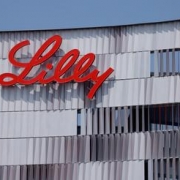Laboratory testing found that Regeneron Pharmaceuticals Inc.’s Covid-19 antibody cocktail can combat a coronavirus variant first found in South Africa, but a similar drug from Eli Lilly and Co. is inactive against it, according to a study.
In a paper published in Alzheimer’s and Dementia, a team of researchers called for more prospective studies that will look into the impact COVID-19 has on brain functioning, given the disease has been frequently associated with neurologic symptoms such as seizures and psychosis.
Clarivate Plc released the company’s list of Highly Cited Researchers 2020 that identifies researchers who “demonstrated significant influence in their chosen field or fields through the publication of multiple highly cited papers during the last decade.”
World’s top intensive care body advises against remdesivir for sickest Covid patients
Antivirals, Coronavirus Disease 2019 (COVID-19), Dexamethasone, Doctors, EU, Gilead, Hospitals, Interim Data, Medical Professionals, Papers, Remdesivir, Scientific Papers, Steroids, Therapeutics, World Health OrganizationThe antiviral remdesivir should not be used as a routine treatment for Covid-19 patients in critical care wards, the head of one of the world’s top bodies representing intensive care doctors said, in a blow to the drug developed by U.S. firm Gilead.
Additional findings from Biogen’s Phase II LILAC study show the biotech company’s lupus drug candidate BIIB059 is superior to placebo for reducing joint disease activity in patients with systemic lupus erythematosus (SLE).
The Nobel Prize in Chemistry was awarded to Emmanuelle Charpentier and Jennifer A. Doudna for their discovery and development of CRISPR gene editing.
Progentec Diagnostics Inc. launched a novel blood test to determine the likelihood that a patient with systemic lupus erythematosus (commonly known as both SLE and lupus) will experience an immunologic disease flare during the coming 12 weeks.
RegeneRx Biopharmaceuticals Inc. announced that a multi-institutional team of scientists from eight American research centers published a research paper on new therapeutic approaches for Covid-19 in which they propose that Thymosin beta 4 (Tβ4), because of its ability to induce fibrinolysis, among other activities, may be useful in treating patients with the Covid-19 virus.
A Biogen corporate meeting held in Boston in March that was initially connected to about 100 cases of COVID-19 could have led to a significantly higher number of infections.
New Drug Discovery Process Could Significantly Cut Development Time
Cells, Coronavirus Cases, Coronavirus Disease (COVID-19) Pandemic, Coronavirus Disease 2019 (COVID-19), Coronavirus Treatment Acceleration Program (CTAP), Drug Development, Drug Discovery, FDA, Medical Journals, Nucleoside Analogs, Papers, Science, Scientists, Severe Acute Respiratory Syndrome Coronavirus 2 (SARS-CoV-2), SynthesisA paper published in the journal Science on August 8 suggests that it may be possible to speed up the drug discovery process.









